David Harris
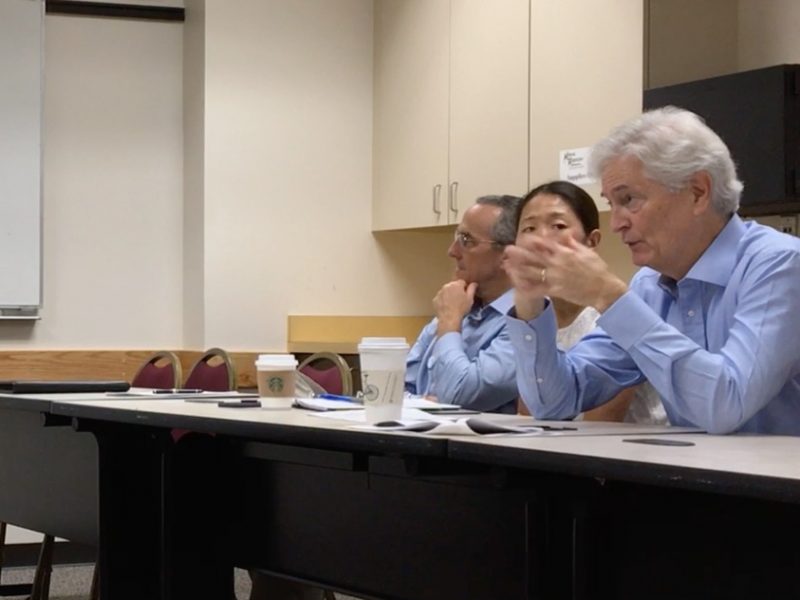
Volunteers Crucial to Federation Decision-Making: Two Stories
“We are community-driven,” says 2018 Campaign Cochair Gary Greenberg.
The dialogue, feedback, and accountability built into Jewish Federation of Cincinnati practices create community-wide goals and ultimately the best, community-driven decisions, say 2018 Community Campaign Cochairs Debbie Brant and Gary Greenberg. Here they share what they learned on visits to two programs that the Federation funds, the Meals on Wheels program at the Mayerson JCC, and multiple programs at Jewish Family Service’s Barbash Family Vital Support Center in Clifton.
Cincinnati is unique: per capita, Cincinnati’s Jewish Federation has more volunteers who make the crucial decisions about where to allocate money than any other Federation in the country. Typically each year an impressive one hundred volunteers gather every summer and fall, led by another volunteer, and take about 650 hours to figure out how to most effectively use donor’s dollars.
This emphasis on community input is not accidental. “One of our key values at Federation is to be community driven, and we are,” says Gary Greenberg. Since his arrival in 2004, Federation CEO Shep Englander has guided the organization to be more collaborative and responsive to its community and partners. This is a focus that continues, but also emphasizes, federations’ historic roots in communal priorities and decision-making.
Recently Jerry Silverman, CEO of the Jewish Federations of North America, acknowledged Cincinnati’s exceptional volunteerism. Cincinnati is “absolutely in the top echelon of Federations. The collaboration between professionals and volunteers truly sets Cincinnati apart,” he said on a recent trip to Cincinnati.
This summer the two incoming campaign cochairs visited two locations with volunteers from the committee that makes these crucial decisions, the Planning and Allocations Committee. This group is charged with looking at how well the program is working, and making recommendations on future allocations. Here’s what the cochairs learned:
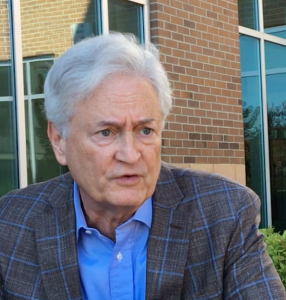
Gary Greenberg at Meals on Wheels at the JCC: “Meals on Wheels is a perfect example”
Meals on Wheels is a program administered by the Mayerson JCC and funded through grants from the Jewish Federation, government sources, and private donations. This past year Meals on Wheels at the JCC delivered 40,183 meals to Cincinnati-area homebound seniors. Every year the Planning and Allocations committee visits the JCC to talk with the professionals there, getting an overview of the program and viewing the operation in action.
Federation: What did you notice when you visited the Meals on Wheels kitchen at the JCC and talked with the professionals who organize it?
Greenberg: First of all this whole facility, this Jewish Community Center, is a fantastic facility and the work that’s done here is amazing. To speak specifically about the work done with our elder population: there is a wide range of services that all work together in an integrated manner, and the Meals on Wheels program is an important part of that. What was confirmed for me is that not only do we provide a tremendous quantity of service, but also there is the quality of that service—that it is done in a caring way, in an attentive way.
Federation: Can you tell us more?
Greenberg: As just one example: one of our delivery drivers noticed that one of our clients was incapacitated and by following up on that may very well have saved that client’s life. But in the broader sense we are saving our clients’ lives on a daily basis by delivering nutritious meals with love and care.

Federation: How does the process work?
Greenberg: So a lot of people have questions about why we do what we do at Federation. All of us who care about the community want to contribute and spend our dollars wisely and effectively. But very few of us have the time or the resources to be able to decide how to spend that money wisely and effectively. But Federation does. So Meals on Wheels is a perfect example. What Federation does is it makes sure that not only do we provide the quantity of this service that’s needed, but also that it’s done in a quality way and a caring way. We put the time and the effort in to make sure that a Holocaust survivor, for example, gets a meal that is made with care, that is a decent meal, that is delivered in a timely manner by somebody who cares.
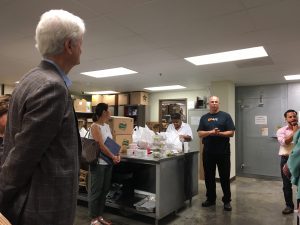
Federation: What do you see as most powerful in all this for you, personally?
Greenberg: I worked hard for what I have, but I’ve also been very, very lucky. And any one of us … any second, that could be me: disabled, without economic resources, shut in, unable to fully take care of myself. So I feel fortunate not only for what I have, but I feel fortunate to be able to be involved in something that is providing this kind of assistance to those in need.
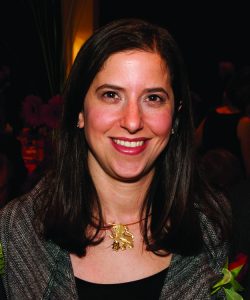
rvice Barbash Family Vital Support Center.
Debbie Brant at Barbash Family Vital Support Center: “Great to see where we’ve come”
Jewish Family Service Barbash Family Vital Support Center offers a unique holistic approach to promote wellness and stability to families experiencing poverty, hunger, and mental illness by combining a food pantry, case management, and peer-based socialization activities under one roof. It opened in Clifton in 2013. Every year Planning and Allocations volunteers visit to talk with the professionals there, getting an overview of the program and viewing the operation in action.
Federation: What did you notice today?
Brant: I really enjoyed meeting the clients that we did, today. But I was impressed with the space. I’ve been here before to help stock shelves or attend a meeting, but today was really time to reflect on where the food pantry has come from where we started. It was just an idea. I happened to be in the room when Fred and Amy Diamond came up with the idea of having a kosher food pantry, and we took the space at Golf Manor in the basement. It was not the best of circumstances. And to see it here on this beautiful day in this great space and feel they are taking tremendous care of the physical building and the people within it—it was really great to see where we’ve come.
Federation: What do you think about the Planning and Allocations site visit here?
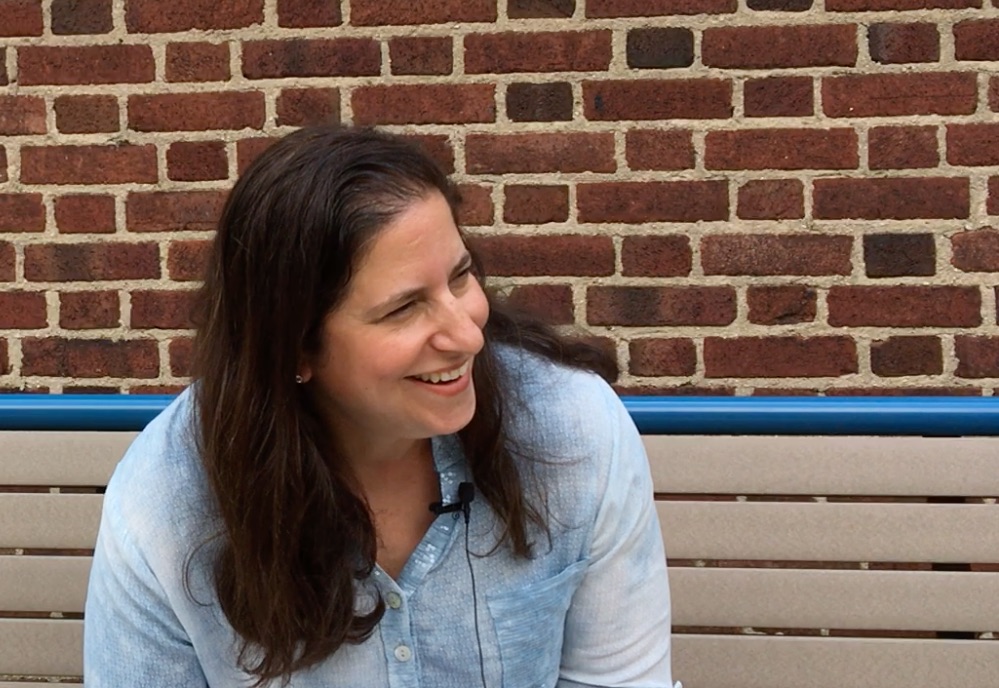
Brant: I love to see people who had never been to the Vital Support Center walk through the doors today and get to hear from the clients themselves, and to hear from [director] Fran Gafvert about the tremendous programs that we’re offering here. It isn’t just about coming in and getting some food, which is really important, but it’s about creating the communities for the clients. And giving them the respect that they need, and that was really impactful.
Federation: How did you feel about the role of Federation here?
Brant: I feel great about Federation’s impact here. People don’t realize that there are Jewish people who need our help, who are hungry, who need our support. I think we’re doing a great job here.
Learn more about the 2018 Community Campaign here. Want to contribute already? Click here, and thank you. Already a donor? Thank you for your support!
The Jewish Federation of Cincinnati: We look at the whole picture, taking into account the diverse needs of the entire community. Together we can do almost anything.

